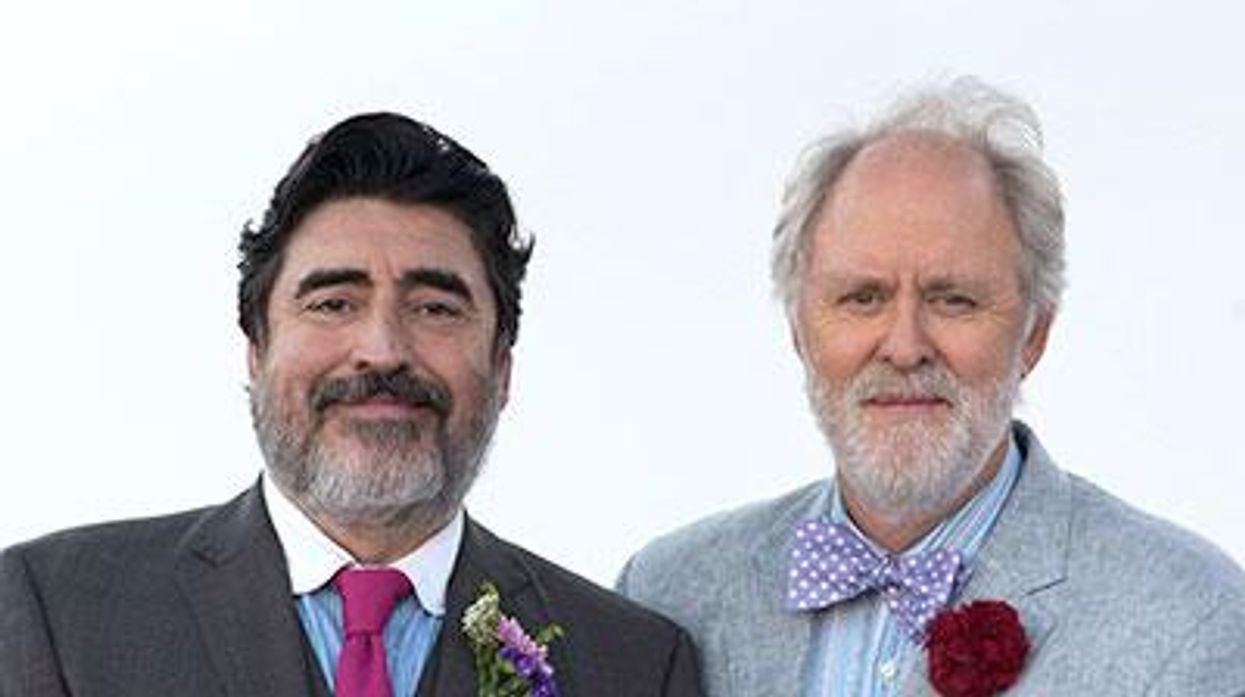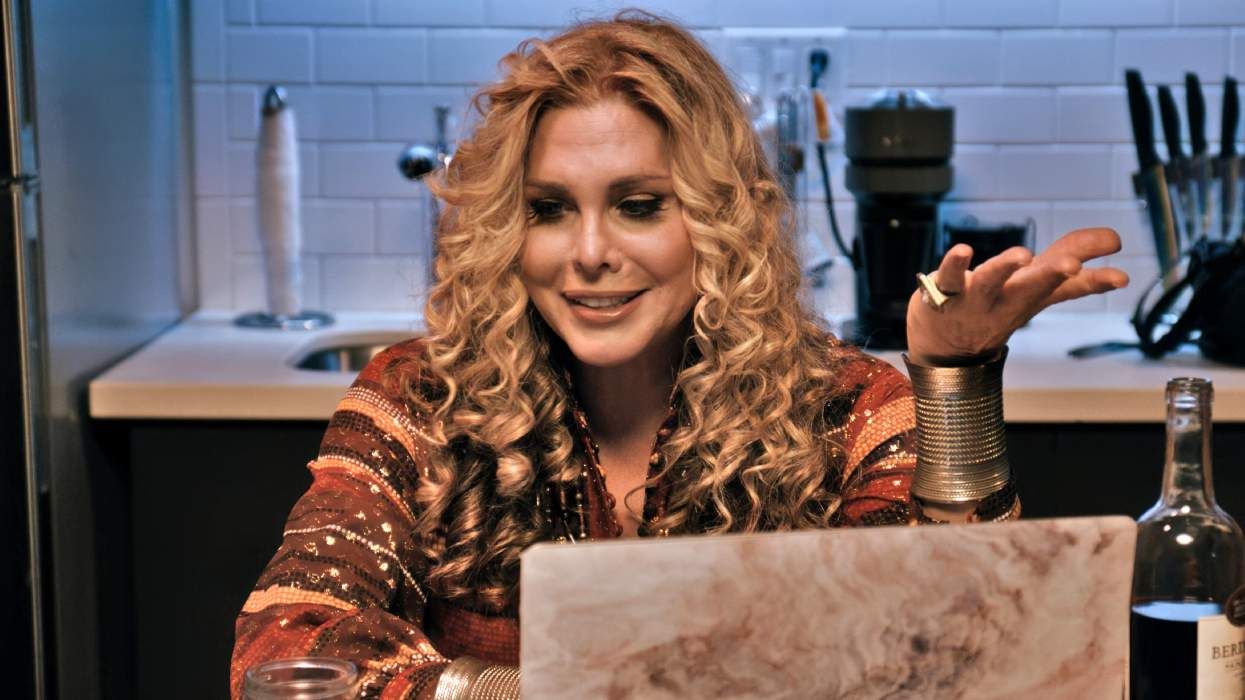It's a story known from headlines: A beloved, veteran teacher in a Catholic school has never hidden the fact that he's gay, but once he makes a "public statement" by marrying his partner, he loses his job.
And it's a story dramatized to powerful effect in a fine film opening today, Love Is Strange, starring John Lithgow and Alfred Molina, which has already been a hit at festivals and is getting much advance praise.
The stars and director-cowriter Ira Sachs don't see Love Is Strange as a message movie -- but if it can move a few minds on marriage equality and LGBT rights in general, that's all right with them. "If our film can take its place in that conversation, that's wonderful," says Molina, adding that he's looking forward to a time when the conversation is no longer necessary.
Adds Lithgow: "This film is not a polemic. It's not a proselytizing film. It's not a screed. But it has the potential to broaden people's minds."
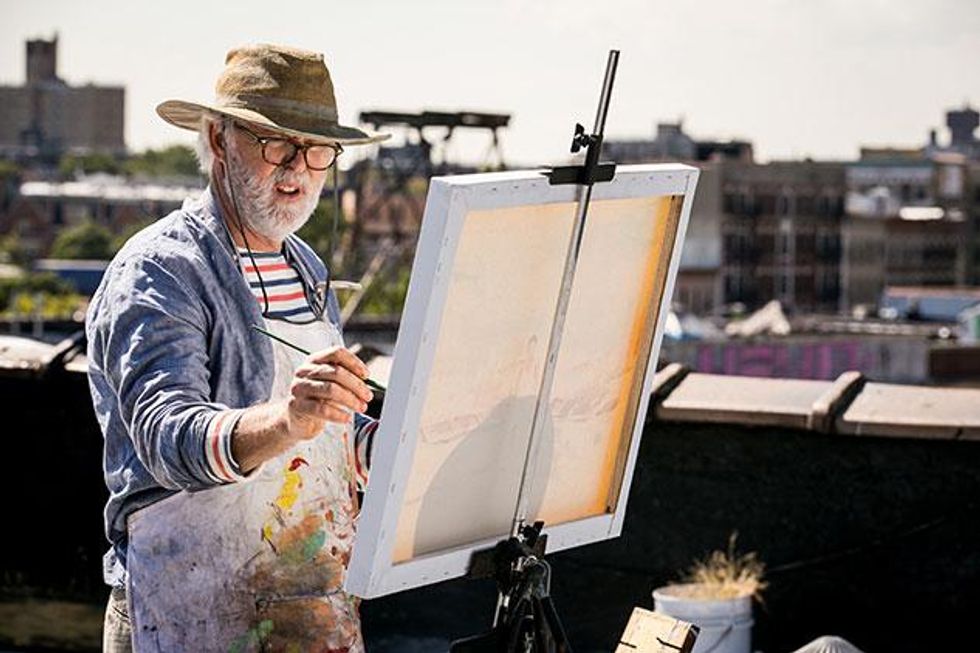
The head of George's school informs him that the local Roman Catholic hierarchy is not pleased about the marriage, and the school will no longer employ him. The loss of income forces George and Ben to sell their co-op apartment, and the New York housing situation being what it is, they have difficulty finding an affordable alternative.
They have to split up temporarily and stay with others while they keep looking. Ben moves into the home of his nephew Elliott (Darren Burrows), a filmmaker married to writer Kate (Marisa Tomei), becoming the roommate of their moody teenage son, Joey, played by Charlie Tahan.
George ends up sleeping on the couch in the apartment of longtime friends, coupled police officers Ted and Roberto (Cheyenne Jackson and Manny Perez). The reserved and cerebral George has a hard time adjusting to his hosts' lifestyle of raucous partying, Game of Thrones viewing, and Dungeons and Dragons games.
The film portrays all the thorniness of living with other people in a small space -- but most of all, it depicts the enduring love of George and Ben and how tough the separation is for them.
"The richness and the romantic tone of the central relationship, I think, is unique and is a testament to the intimacy that John Lithgow and Alfred Molina arrived at," Sachs says.
The stars hadn't worked together before, but they knew each other fairly well. "I just knew this would be effortless," Lithgow says. "There's a complete lack of anxiety or self-consciousness in working with him."
They say they were drawn to the project by the quality of the script. "I was very touched and affected by the story," Molina says, while Lithgow adds, "It was the best script I'd read since Terms of Endearment," for which he was Oscar-nominated.
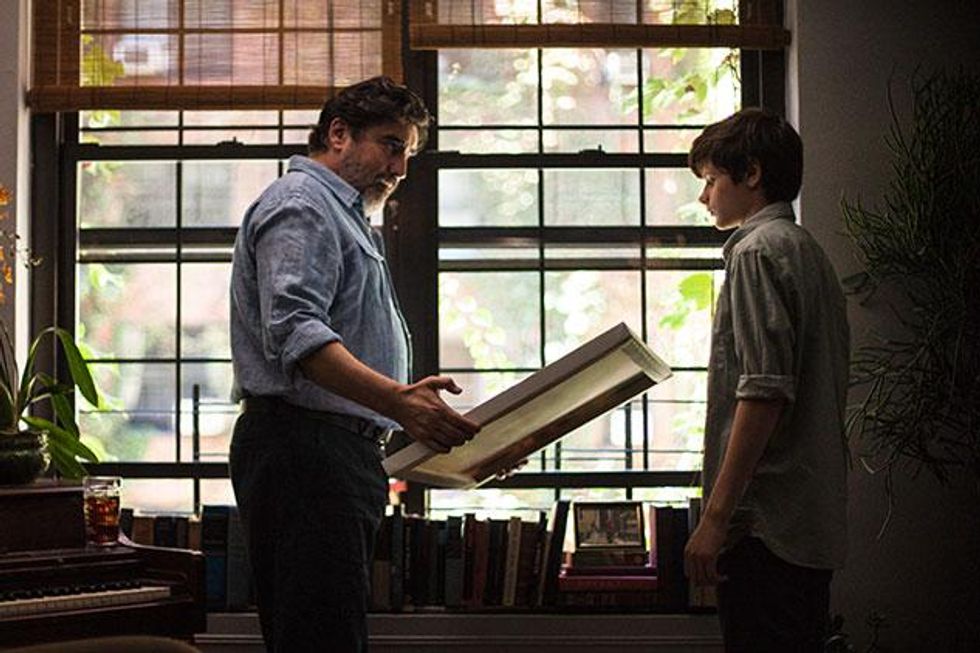
"Love is love," Molina adds. "Gay men don't love in a different way than straight men do, and that's good." He hopes the on-screen relationship comes off as authentic, but that's for the audience to judge, he says.
Molina notably played gay previously as Kenneth Halliwell, playwright Joe Orton's doomed lover, in the 1986 film Prick Up Your Ears, and recently played what he calls "the homophobe," the gay protagonist's brother, in the HBO production of Larry Kramer's The Normal Heart. Lithgow contributed one of the screen's best transgender portrayals as Roberta Muldoon in 1982's The World According to Garp, which brought him his first Oscar nomination and teamed him with Robin Williams. ("I'm one of millions and millions of people who feel a sense of loss," he says of Williams's death.)
The two actors are happy to be considered LGBT allies. In May, Lithgow received the Human Rights Campaign's Equality Award for his work in furthering the cause, and Molina was the presenter. "It was an extraordinary event," Lithgow says. "This is a completely new sensation, to be invited into this world of activism."
The degree to which that activism has advanced marriage equality helped inspire Sachs in crafting the Love Is Strange screenplay, a collaboration with Mauricio Zacharias. Sachs and his husband, painter Boris Torres, are among the many same-sex couples married in New York State since its passage of a marriage equality law in 2011. "In my 40s, I have, for the first time, an option about love which I think is very much connected to the changing story of our times," Sachs says. He couldn't have made the film five years ago, he says: "I wouldn't have felt the same way about love."
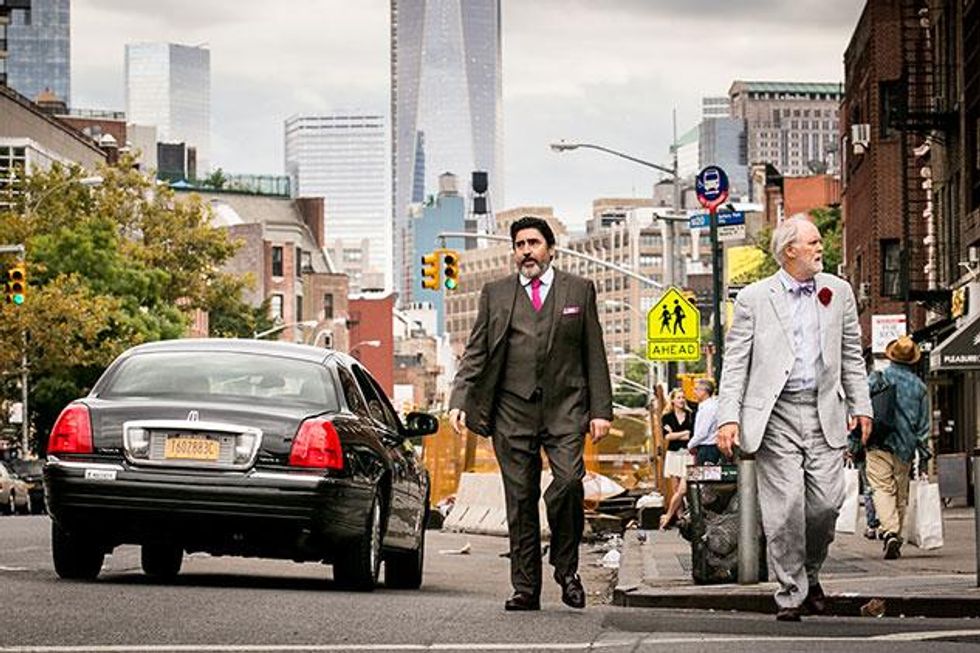
And the portrayal of George and Ben's relationship is not only deeply touching but in some ways unusual -- for one thing, movies seldom focus on loving gay couples, but they also rarely focus on lovers of any stripe who are middle-aged or older. "Often you don't see this end of the age spectrum," Molina notes.
Sachs says he was also inspired by the 45-year relationship of his great-uncle and his partner, the sculptor Ted Rust. The character of Ben, a painter, owes a great deal to Rust, he says, with similarities such as a late-career turn to youthful subjects. A painting Ben works on in the film is a collaboration between Torres and Lithgow, himself a painter of some note. Another piece of Lithgow's work appears in the movie as well.
As the movie opens, about the only sour note surrounding it is that it's been rated R, when it has no nudity, sexual situations, or violence. New Jersey Star-Ledger writer Stephen Whitty recently pointed this out as an example of an apparent double standard by which the Motion Picture Association of America judges films with gay subject matter.
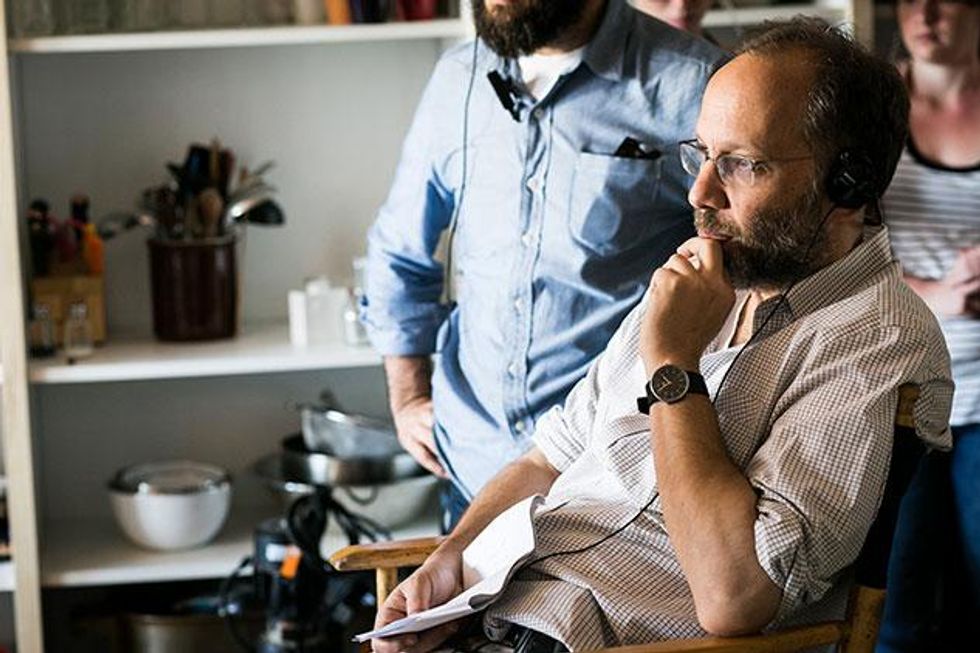
Despite the rating, Sachs and his stars are confident that Love Is Strange will reach and touch many moviegoers. "I would like them to enjoy themselves, laugh a lot, and be touched in a way that's personal," the director says. "For many, Ben and George will feel like family, and that is a place where change can happen."
"We want the film to delight and move people," adds Lithgow. "This may be one of my favorite film experiences ever. It's a beautiful handling of an important subject."
Love Is Strange opens in limited release today. Watch a trailer below.
All images provided, courtesy of Sony Pictures.
